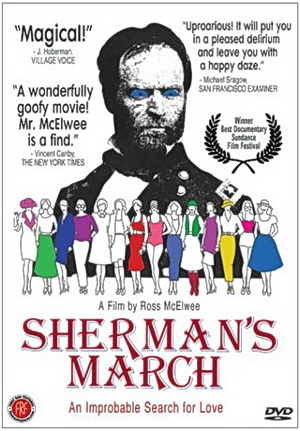Revealing Painful Family Secrets in A Personal Documentary
Yesterday I taught a special class on the personal documentary at UC Berkeley’s Graduate School of Journalism. We were discussing what veteran filmmaker Ross McElwee (Sherman’s March, 1986) calls “the horror” of revealing the vulnerabilities of one’s family members.
“What’s the point of revealing painful family secrets?” asked one student.
Indeed, what justifies a filmmaker in revealing anything that makes family members and loved ones look bad?
If the filmmaker perceives him or herself to have been wronged, making such a film, which points the finger at various people in the family, could be considered therapeutic. And it probably is… for the filmmaker.
But is it therapeutic for the audience? If not, it’s not a successful film. It’s a self-indulgent film.
Audiences can smell self-indulgence and abuse of power very quickly.
In the personal documentary “Tarnation,” filmmaker Jonathan Couette comes breathtakingly close to crossing the line, in my opinion, at the climax scene, when he confronts his frail-looking grandfather on camera about allegedly locking the filmmaker’s mother in the closet when she was a little girl.
“Is that elder abuse?” asked one student.
I am currently story consulting with a filmmaker who is making a film that reveals many family secrets, including the selfish, close-minded behavior of his outwardly appealing mother.
Our challenge is to walk the same fine line, revealing his mother’s faults in a way that allows the audience to feel both empathy for her difficulties and make their own judgment about her bad behavior.
The bottom line is that you as a filmmaker have the ultimate power in the edit room. Will you exercise this power in a way that shows compassion and good judgment?
In my experience, having made four personal documentaries (three of which were very successful), the only way to successfully exercise one’s power is by getting enough perspective.
Let someone else edit your film. If that isn’t feasible, then let a little time pass between the events that are so dramatic and compelling in your life as you are filming them, and the actual act of editing those events.
Time will give you the distance you need to see yourself as a character, who is separate from the self that is the filmmaker.
And your audiences will appreciate your wisdom and dexterity in avoiding the charge of self-indulgence.
To learn more about making successful personal documentaries, check out my online course, “Structuring Personal Documentaries With Universal Appeal,” at https://newdocediting.com/products/direct_personal_documentary/.
